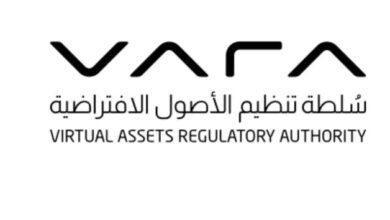IRIS Health UAE uses AI and Blockchain to save than USD 10 million in MENA

IRIS Health Services CEO Anil Nair, a keynote speaker at the Federation of Afro-Asian Insurance and Reinsurance Companies (FAIR) Medical Insurance and Healthcare Congress in the Maldives, said the company has been able to save its clients more than USD 10 million in healthcare fraud in the UAE, Oman and other Middle Eastern markets by integrating emerging technologies like AI, blockchain and deep machine learning into its operations.
For the Middle East, this is particularly significant given the region’s high healthcare spends and embrace of AI and similar technologies, he said. The UAE healthcare market alone is expected to grow to nearly USD 20 billion by 2020, according to Alpen Capital; Oman is also likely to witness significant healthcare industry growth.
Simple, web-based technological safeguards can be easily implemented by regulators, insurance companies, individuals and medical providers to combat fraud, waste and abuse (FWA) in the healthcare system, Nair said.
Estimates suggest between USD 250 billion to USD 480 billion is lost to healthcare fraud globally every year; in the United States alone, fraud losses average USD 60 billion annually according to conservative estimate. The Middle East reportedly loses more than USD 1 billion annually to health insurance fraud.
“The true cost of healthcare fraud, waste and abuse is much higher,” Nair said. “FWA creates financial, health and mortality losses for consumers, employers, insurers, governments and societies. It increases premiums, poses a physical risk by subjecting patients to unnecessary treatments and medications, takes away funds that could be better used in communities – those are just some of the consequences.”
Health insurance FWA primarily occurs at the patient or provider level. Individuals using someone else’s identification or filing false claims, providers unbundling procedures or billing for incomplete treatments are all examples of fraud techniques.
“Fraud is diverse and constantly evolving, so our solutions must be too,” Nair said. “Our approach balances technological and human resources to deliver smart, real-time analysis and actionable insight and distinguish legitimate anomalies from suspicious behavior. “Future technologies like AI are the front line of our anti-FWA systems with best-in-class human expertise as a second line of defense. Given the vast amount of medical data involved and the sensitivity and timeliness required, you must have both,” he added.
IRIS’ current in-market technologies include web-based, real-time eligibility verification so medical service providers can avoid treating ineligible or uninsured members. Its coding engines also employ millions of rules to compare, assess and flag suspicious transactions and patterns in vast amounts of data in seconds.
IRIS, Nair added, provides its proprietary eligibility verification free to all its clients and network providers as part of the company’s contribution to the community and sector. Earlier this year, IRIS Health Services received the ‘Innovation of the Year’ award in the Etisalat SMB Awards. The company has also been recognized as the first to introduce the Emirates ID as the default medical insurance card.





